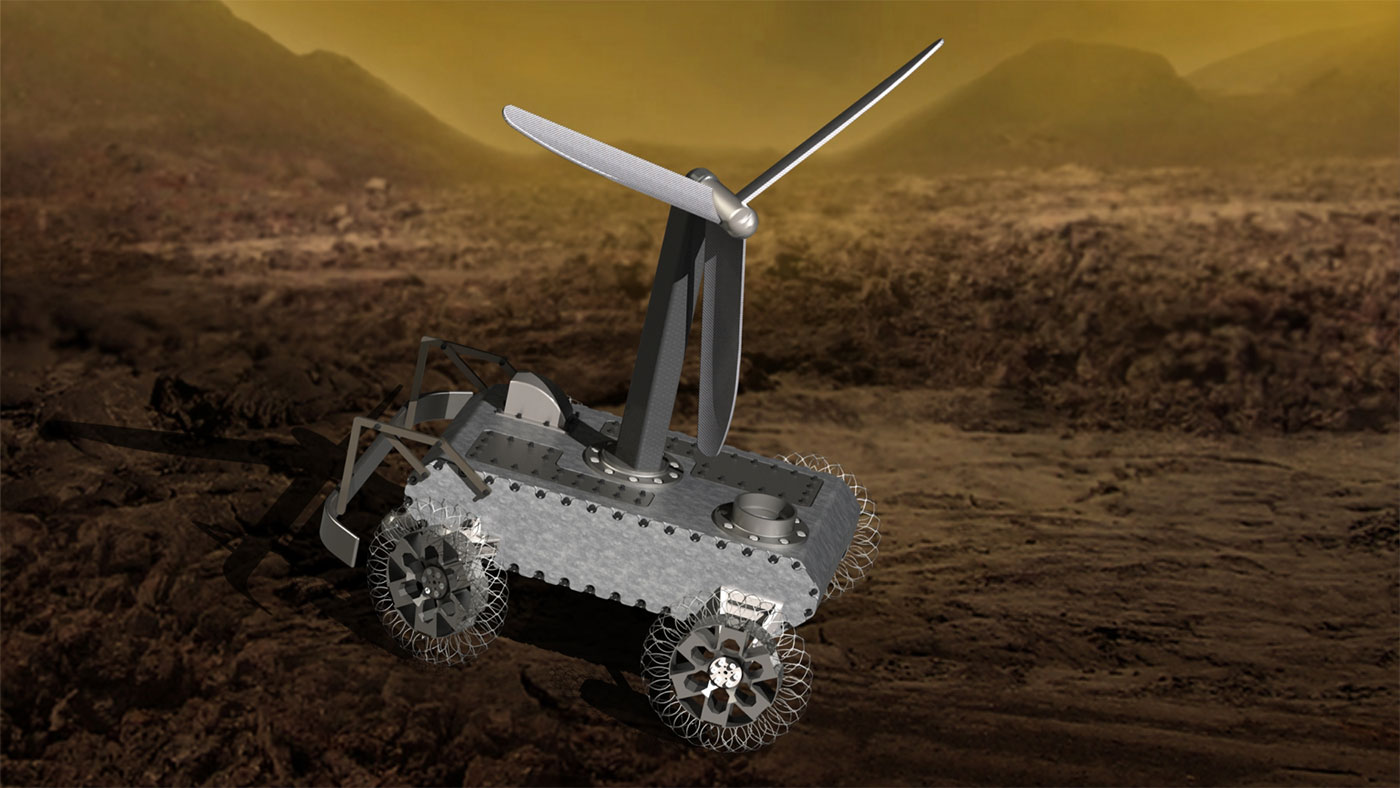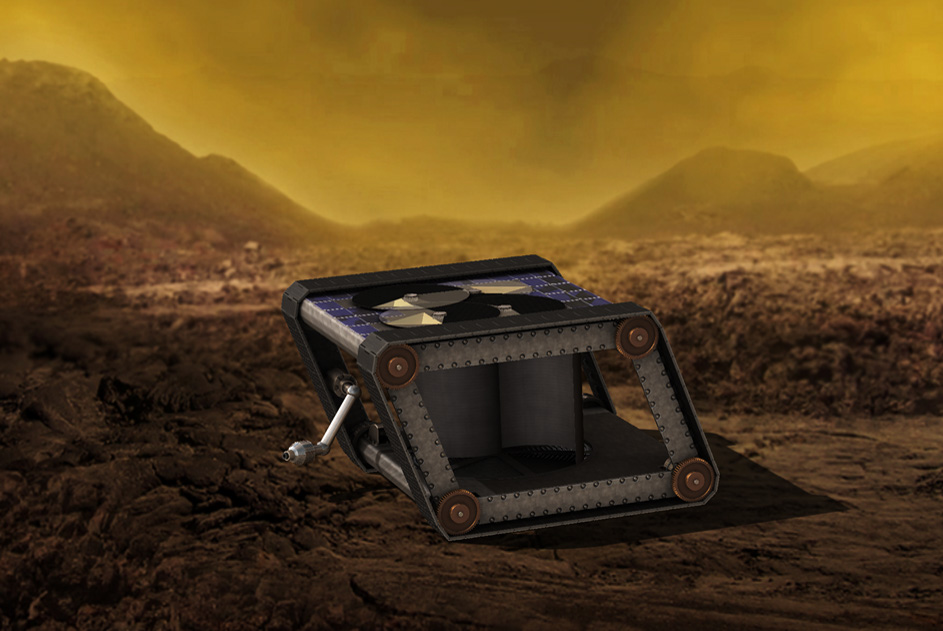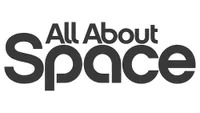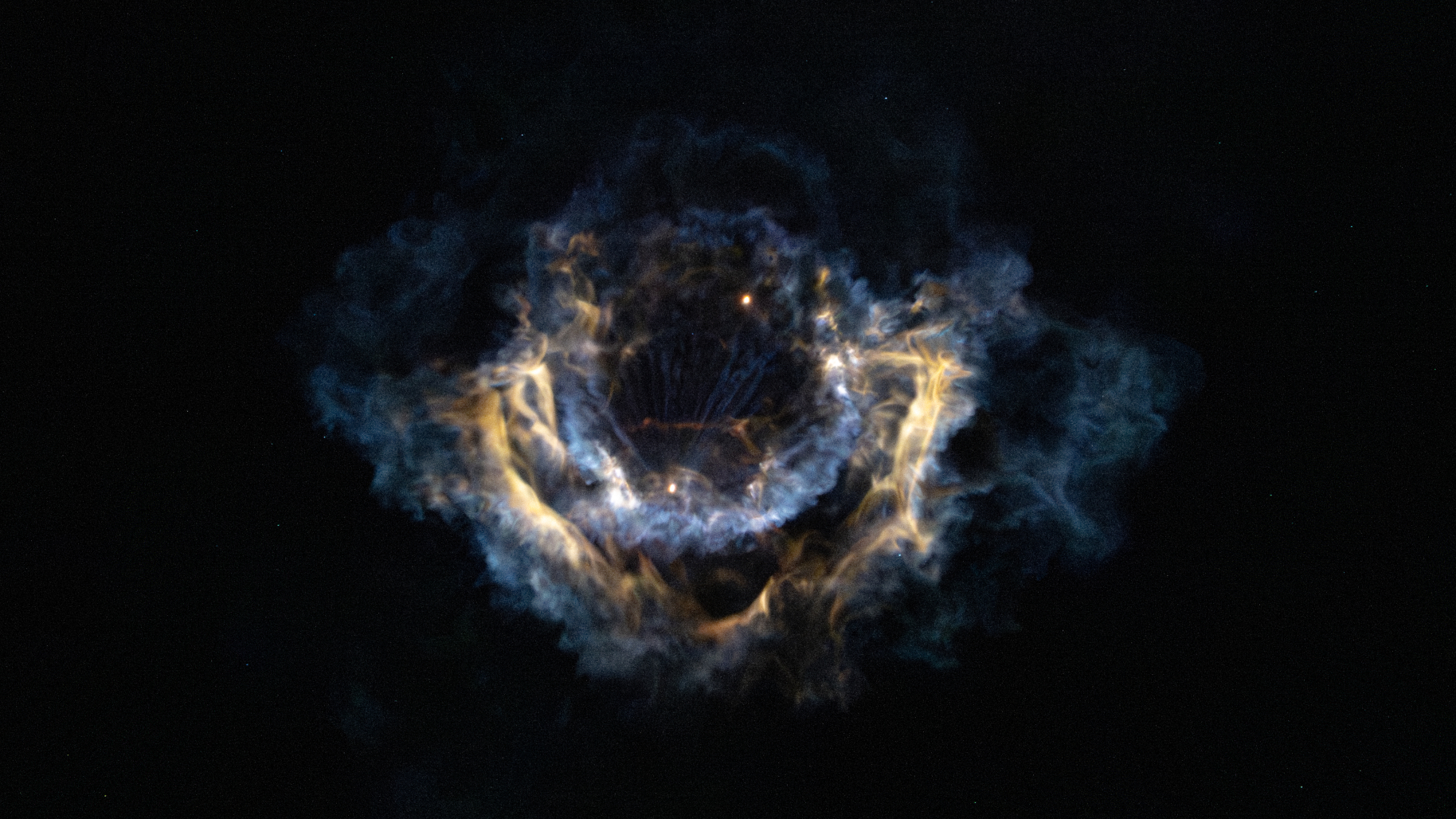NASA asks public to design sensors for Venus rover concept
The sensors should be designed for ride in "hell," NASA says.
Breaking space news, the latest updates on rocket launches, skywatching events and more!
You are now subscribed
Your newsletter sign-up was successful
Want to add more newsletters?

Delivered daily
Daily Newsletter
Breaking space news, the latest updates on rocket launches, skywatching events and more!

Once a month
Watch This Space
Sign up to our monthly entertainment newsletter to keep up with all our coverage of the latest sci-fi and space movies, tv shows, games and books.

Once a week
Night Sky This Week
Discover this week's must-see night sky events, moon phases, and stunning astrophotos. Sign up for our skywatching newsletter and explore the universe with us!

Twice a month
Strange New Words
Space.com's Sci-Fi Reader's Club. Read a sci-fi short story every month and join a virtual community of fellow science fiction fans!
NASA is asking the public to help them explore "hell," as the agency terms it — the roasting surface of the planet Venus.
The cloud-shrouded planet is so socked in that its surface — which is covered in lava flows and possibly active volcanoes — soars to oven-like temperatures of 840 degrees Fahrenheit (450 degrees Celsius). The surface pressure is so great that it would quickly crush a nuclear submarine, according to NASA.
But NASA has plans to deploy a very hardy rover to the surface, and the agency is asking the public to design a sensor to ride on this early-stage conceptual vehicle. Called Automaton Rover for Extreme Environments (AREE), the vehicle will use wind power to spend several months carefully crawling Venus' surface. The vehicle requires the sensor to navigate obstacles in its environment, such as rocks and steep terrain.
Video: Rovers on Venus? See NASA program's extreme environment designs
Related: Steampunk rover could explore hellish Venus
This vehicle is not ready to ship to Venus just yet. AREE is part of NASA's Innovative Advanced Concepts program, which studies very nascent technology to make it more ready for the rigors of space exploration. NASA has not yet formally approved the AREE mission for launch, but the agency is hoping the tech will be used someday on the surface of Venus, upon which no spacecraft has landed since 1985. That last mission was the Soviet Union's Vega 2, which like predecessor landers, succumbed within a short while to the extreme environment on Venus' surface.
"Earth and Venus are basically sibling planets, but Venus took a turn at one point and became inhospitable to life as we know it," Jonathan Sauder, principal investigator for AREE at NASA's Jet Propulsion Laboratory, said in a statement. "By getting on the ground and exploring Venus, we can understand what caused Earth and Venus to diverge on wildly different paths and can explore a foreign world right in our own backyard."
Several prizes will be awarded for sensor concepts; the device must be able to withstand the extreme temperatures and pressures of the surface. One common problem, NASA said, is that state-of-the-art electronics fail at just over 250 F (120 C).
Breaking space news, the latest updates on rocket launches, skywatching events and more!
First place for the sensor idea will receive $15,000, with other prizes of $10,000 (for second place) and $5,000 (for third place). Submissions are due by May 29, and NASA will announce the winners in July. More details about sensor submissions and contest eligibility are available at the HeroX crowdsourcing platform, which is hosting the contest on behalf of JPL and the NASA Tournament Lab.
- The 10 weirdest facts about Venus
- How Venus turned into hell, and how the Earth is next
- Living on planet Venus: Why it would be hard (infographic)
Follow Elizabeth Howell on Twitter @howellspace. Follow us on Twitter @Spacedotcom and on Facebook.
OFFER: Save at least 56% with our latest magazine deal!
All About Space magazine takes you on an awe-inspiring journey through our solar system and beyond, from the amazing technology and spacecraft that enables humanity to venture into orbit, to the complexities of space science.

Elizabeth Howell (she/her), Ph.D., was a staff writer in the spaceflight channel between 2022 and 2024 specializing in Canadian space news. She was contributing writer for Space.com for 10 years from 2012 to 2024. Elizabeth's reporting includes multiple exclusives with the White House, leading world coverage about a lost-and-found space tomato on the International Space Station, witnessing five human spaceflight launches on two continents, flying parabolic, working inside a spacesuit, and participating in a simulated Mars mission. Her latest book, "Why Am I Taller?" (ECW Press, 2022) is co-written with astronaut Dave Williams.



